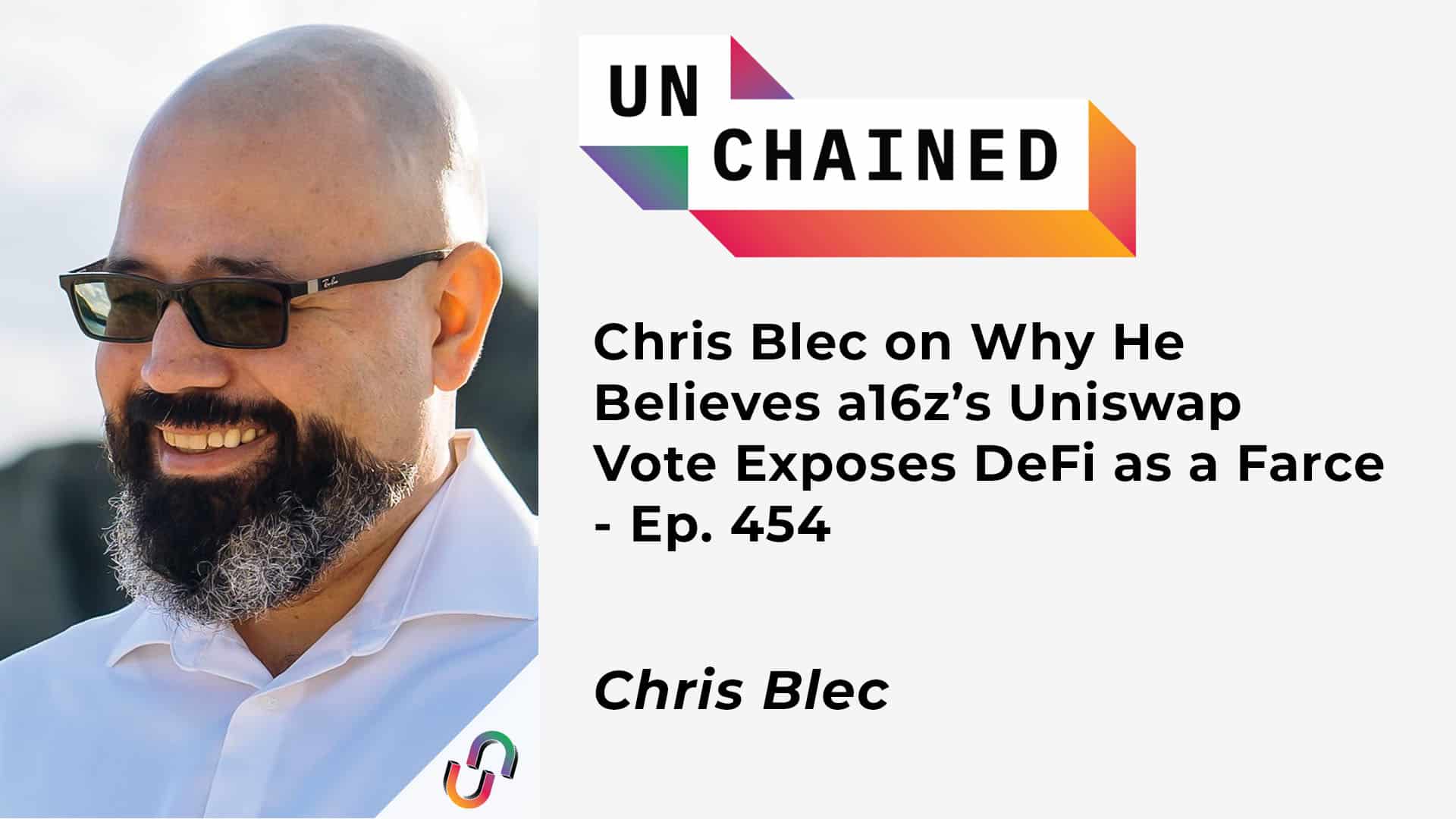Chris Blec, DeFi researcher and founder of the Blec Report, explains why he believes the involvement of Andreessen Horowitz (a16z) in a contentious Uniswap governance proposal flies in the face of crypto’s core value: decentralization. He argues that the venture capital firm’s ability to potentially sway the vote in favor of a portfolio company undermines claims that DeFi is “people-powered.” The vote, which is not yet concluded, is the latest venue for people to debate the merits of DeFi governance and whether one token really should equal one vote.
Show highlights:
- why a16z decided to vote against a key section of the Uniswap governance proposal
- the problem Chris sees with the current design of DAOs
- whether there is a parallel to be drawn between TradFi and DAO governance
- why Chris says people are mistaken when they think about the goals of crypto VC
- whether the fact that some VCs control so much voting power goes against the ethos of decentralization
- how Chris thinks VCs are funding lobbyist groups to push for their interests, not those of crypto as a whole
- why Chris believes the “one token, one vote” system doesn’t work
- some alternatives that could be pursued to help the issue of whale token voting
- whether regulators will come after DAOs and especially the ones that are using current governance mechanisms
Thank you to our sponsors!
Crypto.com
Guest
Chris Blec, DeFi researcher and founder of the Blec Report
- Tweet about token voting
- Tweet about engaging with a16z
Links
- Unchained: Does a16z Control Uniswap?
- CoinDesk: Contentious Uniswap Vote Highlights the Opaqueness of Decentralized Governance
Related Twitter threads:
- From Eddy Lazzarin
- From Defi Ignas
- From Abdullah Umar
- From Philipp Zentner
- From Macro Mate
- From Adam Cochran




